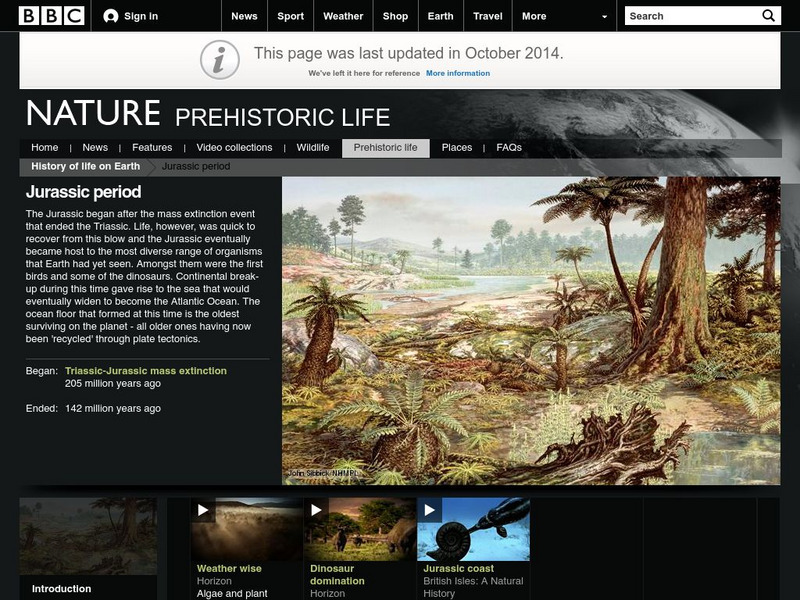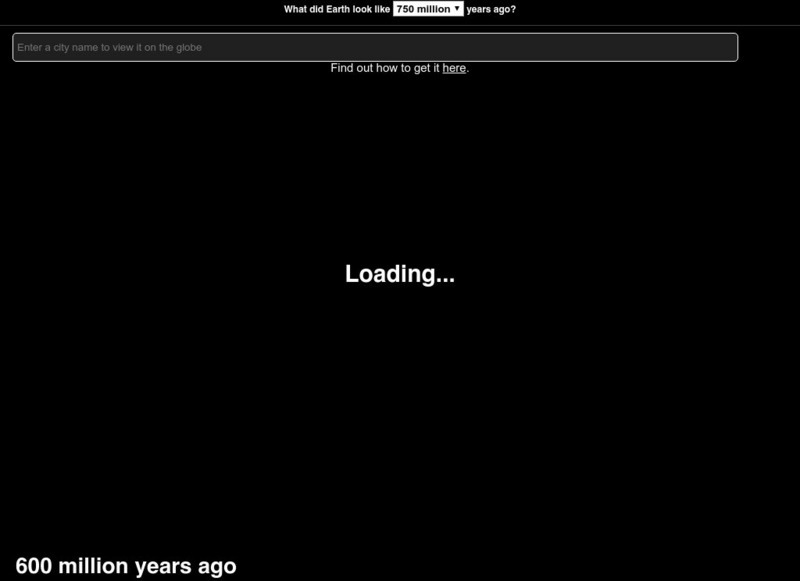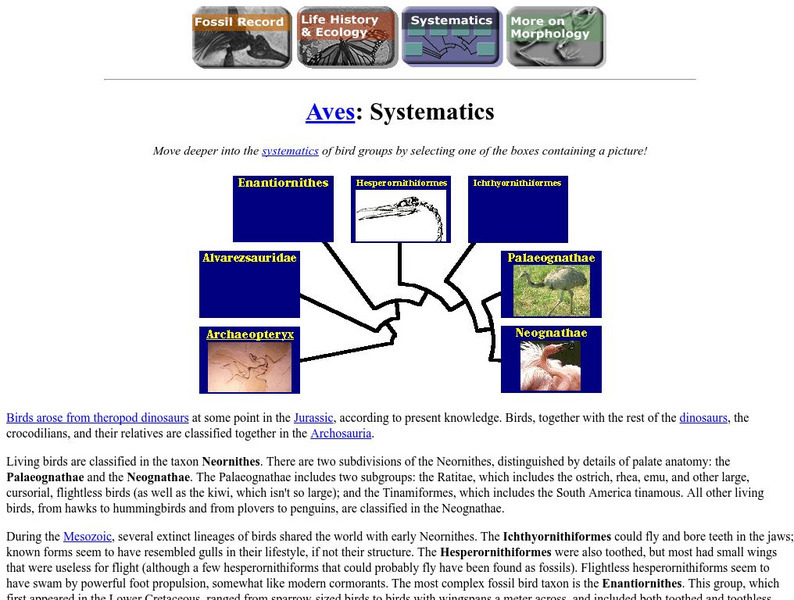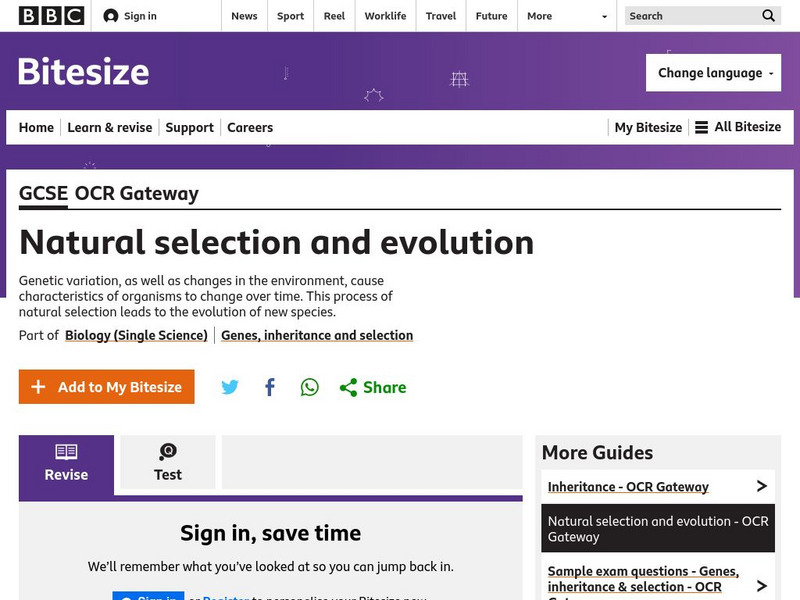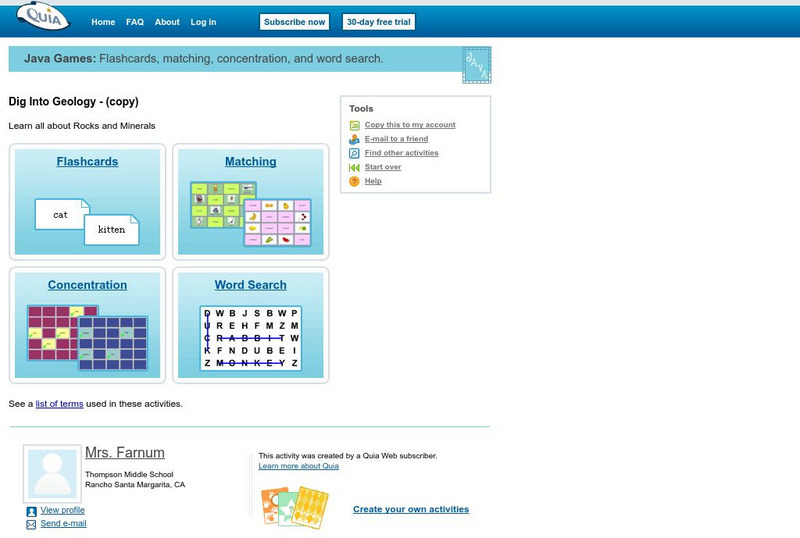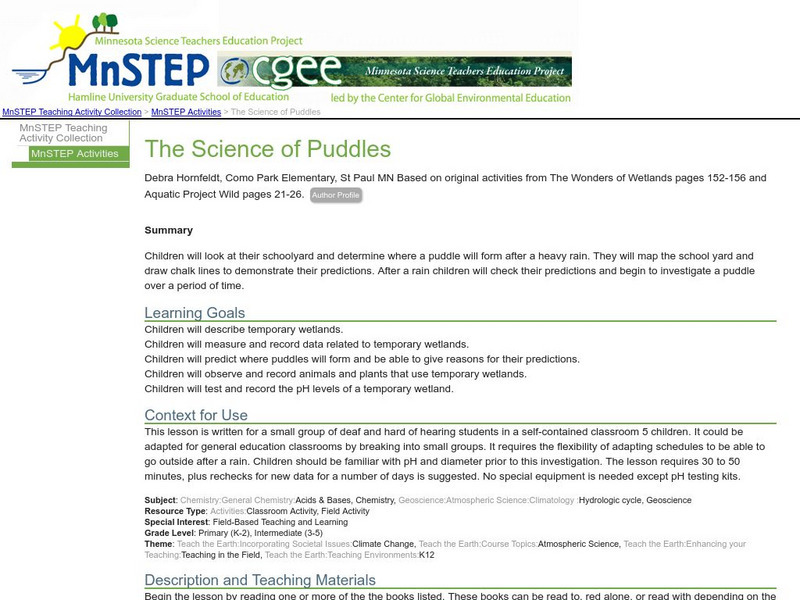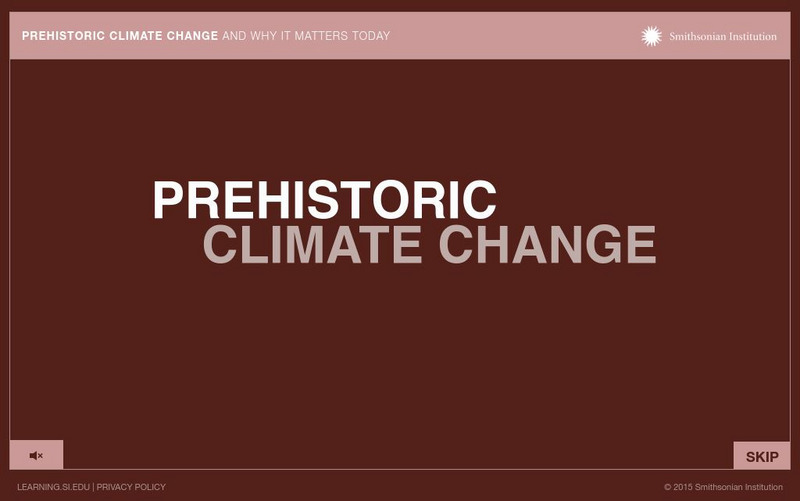BBC
Bbc Nature: Prehistoric Life: Jurassic Period
Overview of the Earth in the Jurassic Period told by photos, news, videos, and external links with emphasis on what grew then, what lived then, the causes of mass extinction, types of fossils, and what life was like in general.
BBC
Bbc Nature: Prehistoric Life: Triassic Period
Overview of the Earth in the Triassic Period as told by photos, news, and external links with an emphasis on what grew then, what lived then, the causes of mass extinction, types of fossils, and what life was like in general.
TED Talks
Ted: Ted Ed: Four Ways to Understand the Earth's Age
The Earth is 4.6 billion years old- but how can humans relate to a number so colossal, and where do we fit on the geologic timeline? Joshua Sneideman reminds us of our time and place in the universe. [3:45]
Other
Georgia Perimeter College: The Precambrian Era
This resource provides detailed information on each of the periods within the Precambrian Era. It discusses what earth was like, what the first multiple cell organisms were like and when they appeared.
Other
Milwaukee Public Museum: The Virtual Silurian Reef
A virtual tour of a Silurian reef. Includes information on geologic principles, the geologic time scale, and the Silurian period. Explores Silurian reefs and reef organisms.
University of California
Ucmp: Systematics
A good overview of the radiation within the class through geologic time.
Other
Natural History Museum of Los Angeles County: Dinosaur Institute: Dinosaurs
The origins, evolution and diversification of dinosaurs through geologic time are described, as well as their portrayal in Hollywood movies. There is also information about how birds evolved from dinosaurs.
Scientific American
Scientific American: The Origin of Oxygen in Earth's Atmosphere
The breathable air we enjoy today originated from tiny organisms, although the details remain lost in geologic time. Scientific American helps uncover this mystery.
BBC
Bbc: Science and Nature: Prehistoric Life: Sea Monsters Adventure Game
Learn about prehistoric sea creatures by playing this entertaining online game. A variety of skills are needed as you move through geologic time and encounter different sea creatures.
BBC
Bbc: Gcse Bitesize: Natural Selection and Evolution
Darwin's theory of evolution explains how species of living things have changed over geological time in order to survive in the changing environment. A link to a test is provided.
Science Struck
Science Struck: Flora and Fauna of the Ordovician Period
Describes plants and animals that lived during the Ordovician Period, where it falls in the geologic time scale, tectonic activity happening then, the climate and environment, and extinction events.
Quia
Quia: Dig Into Geology
Site provides games and activities that will allow students to have fun, and learn more about rocks and minerals at the same time.
US Geological Survey
Usgs: Water Quality of San Francisco Bay
This resource from the United State Geological Survey provides data about San Francisco Bay's water quality. Data is displayed in time series plots, vertical profiles, longitudinal sections, space and time contours, and x-y scatter plots.
Science Education Resource Center at Carleton College
Serc: The Science of Puddles
Students will look at their schoolyard and determine where a puddle will form after a heavy rain. They will map the school yard and draw chalk lines to demonstrate their predictions. After a rain children will check their predictions and...
Other
Denver Museum of Nature and Science: Ancient Denvers
What did Denver look like millions of years ago? Find out the answer to this and see how it has changed over time. There is also a list of parks to visit in Colorado.
Other
Sierra Club: Yosemite Glaciers
John Muir was in the Yosemite Valley in 1871. These notes describe his journey, explaining much about Yosemite glaciers and the progress they've made over time.
Smithsonian Institution
Smithsonian Learning Lab: Prehistoric Climate Change and Why It Matters Today
A slideshow will introduce the process of climate change that the earth has experienced since the beginning of time. Discover "leaf margin analysis" which scientists use while studying fossils to determine the temperatures they were...
National Geographic
National Geographic: Landscape
A landscape is part of the Earths surface that can be viewed at one time from one place. It consists of the geographic features that mark, or are characteristic of, a particular area. This resource examines different ways types of...
Georgia Department of Education
Ga Virtual Learning: Ap Biology: Evolutionary Biology
Through informational text, interactive activities, animations, and video clips, students investigate evolutionary biology.
Utah Education Network
Uen: Fossils
Fourth graders act as paleontologists to figure out the environment where various fossils would have existed.
University of California
Ucmp: Learning From the Fossil Record
Fossils provide scientists with clues about Earth's past. This site from the University of California's Museum of Paleontology is great for exploring lots of information on fossils.
Extreme Science
Extreme Science
Explore the science behind the "extremes" in our world. Organized into sections on earth science, the animal kingdom, technology, and space science, this site opens your eyes to giant creatures, amazing technological advances, vast...
Science Education Resource Center at Carleton College
Serc: Geo Logic: Continental Drift and Plate Tectonics
Using the skills of a paleontologist, students are asked to match up lecturers with what day and time they teach, and how many students they have based on clues given from several different perspectives. In the second part of the...
Other popular searches
- Geologic Time Scale
- Geologic Time and Fossils
- Geologic Time Line Project
- Evidence for Geologic Time
- Relative Age Geologic Time
- Geologic Time Poster
- Geologic Time Lines
- Index Fossils Geologic Time
- Geologic Timelines
- Geologic Time Book Mark
- Geologic Time Scale Tests
- Geologic Time Scale Models


